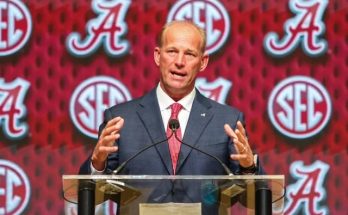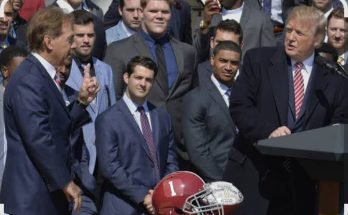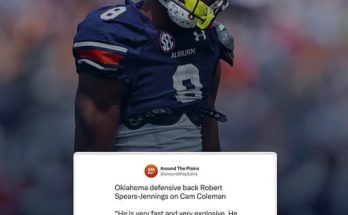Nicole May’s return to Oklahoma as associate head coach marks a deeply symbolic, profoundly meaningful homecoming—not just for her, but for the entire Oklahoma softball program. May, the right-hander who distinguished herself as a fierce competitor and trusted teammate during one of the most dominant eras in college softball history, is now stepping into a leadership role beside Patty Gasso, the architect of the modern dynasty.
May’s collegiate career at OU is the stuff of legends. Arriving as a freshman in 2021, she quickly became a cornerstone of the pitching staff, going 15–2 with a 2.37 ERA. By her junior year, she was undefeated at 18–0 with a stingy 0.91 ERA, third-best in the country. Over four seasons, she compiled a remarkable 48–3 record with a career ERA of 1.47, ranking second in program history by winning percentage (). She also played a critical role in the team’s unprecedented four-peat run from 2021 to 2024—the first such achievement in NCAA softball history
Equally notable is her off-field influence. As one of the program’s senior leaders, May became the “matriarch” of the pitching staff—an emotional anchor and trusted voice among her peers. Head coach Patty Gasso praised her unwavering loyalty: “No one in that moment I would rather have than Nicole May…” (. May’s legacy, both tangible and intangible, helped lay the groundwork for OU’s recent success.
Now, as associate head coach, May joins a staff already anchored by Gasso and longtime associate head coach Jennifer Rocha. Rocha has been integral to Oklahoma’s rise since her hiring in 2018, helping to lead a pitching staff that topped national charts in ERA and shutouts, and steered the program to consecutive national titles (SI). May’s arrival completes a triumvirate of leadership, blending institutional legacy, player experience, and coaching excellence.
May’s transition to coaching comes at a moment of change and anticipation. Following the 2024 season, Oklahoma transitioned from the Big 12 to the Southeastern Conference, immediately capturing both the regular season and tournament titles in its inaugural SEC campaign (). The program is now embarking on a journey to continue its supremacy on a new stage—steeped in legacy and hungry for more success.
May’s presence is uniquely valuable in this context. Her familiarity with OU’s culture, her credibility with current players, and her firsthand experience of what it takes to win four national championships bring an intangible but powerful energy. Her path mirrors those of other former Sooners who have transitioned into coaching roles, like Jennifer Rocha and JT Gasso, reinforcing a culture that prizes continuity and identity.
Her appointment is more than a symbolic nod to the past—it signals strategic intent. May brings a fresh voice and relatable presence to the bench, someone who literally walked in the cleats of today’s players and understands the pressure of sustaining a dynasty. It’s a rare alignment: a decorated alumna stepping into a leadership role, in situ, at the peak of her sport’s prestige.
The significance of May’s new position resonates beyond Norman. It reflects a broader trend in collegiate athletics: programs are increasingly investing in former players who understand the inner workings of their teams—socially, emotionally, and strategically. With May, Oklahoma is reinforcing its foundation, ensuring that its culture continues to evolve rather than degrade.
For May personally, the role represents a grand return. It’s a “monumental homecoming” in every sense—returning to the mound where she made history, now leading the team in a new capacity. As she said in her interview, the goal is clear: harness the legacy, inspire the next generation, and help guide the Sooners toward sustained success. With a trophy case that already includes eight national championships and a fortress at Love’s Field, the program aims to build again, and May’s voice will be central.
In the grand narrative of Oklahoma softball, this moment is a turning of the page. The dynasty persists, but its mantle of leadership is passing into fresh hands—hands that helped build it in the first place. Nicole May’s elevation to associate head coach is a fitting next chapter. It’s a deliberate move by Gasso—a gesture anchored in respect, continuity, and belief in the future.
May’s return is both full circle and forward-looking. The Sooners are reloaded, redefining greatness in a new conference. As associate head coach, May has a starring role in this unfolding story. The stage at Love’s Field is set—not just for another season, but for a lasting dynasty forged by those who helped create it. And with May guiding the next wave, the foundation is rock-solid: talent, tradition, and leadership, all rooted in Norman soil.



